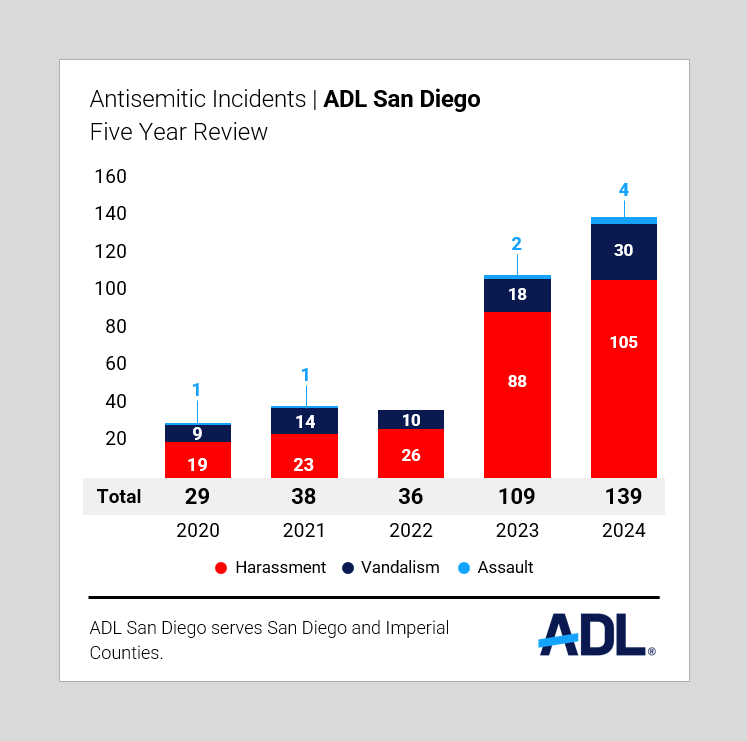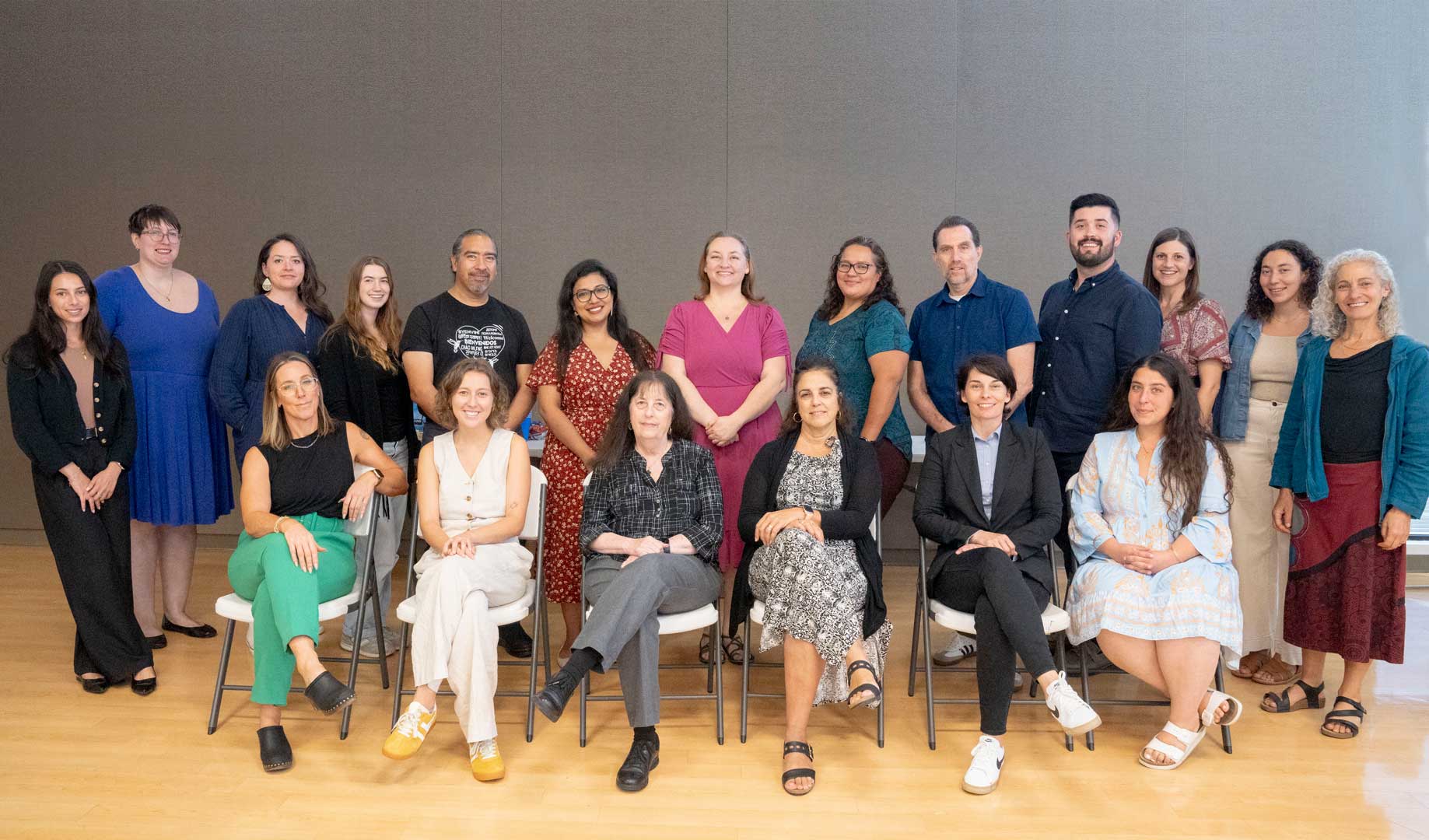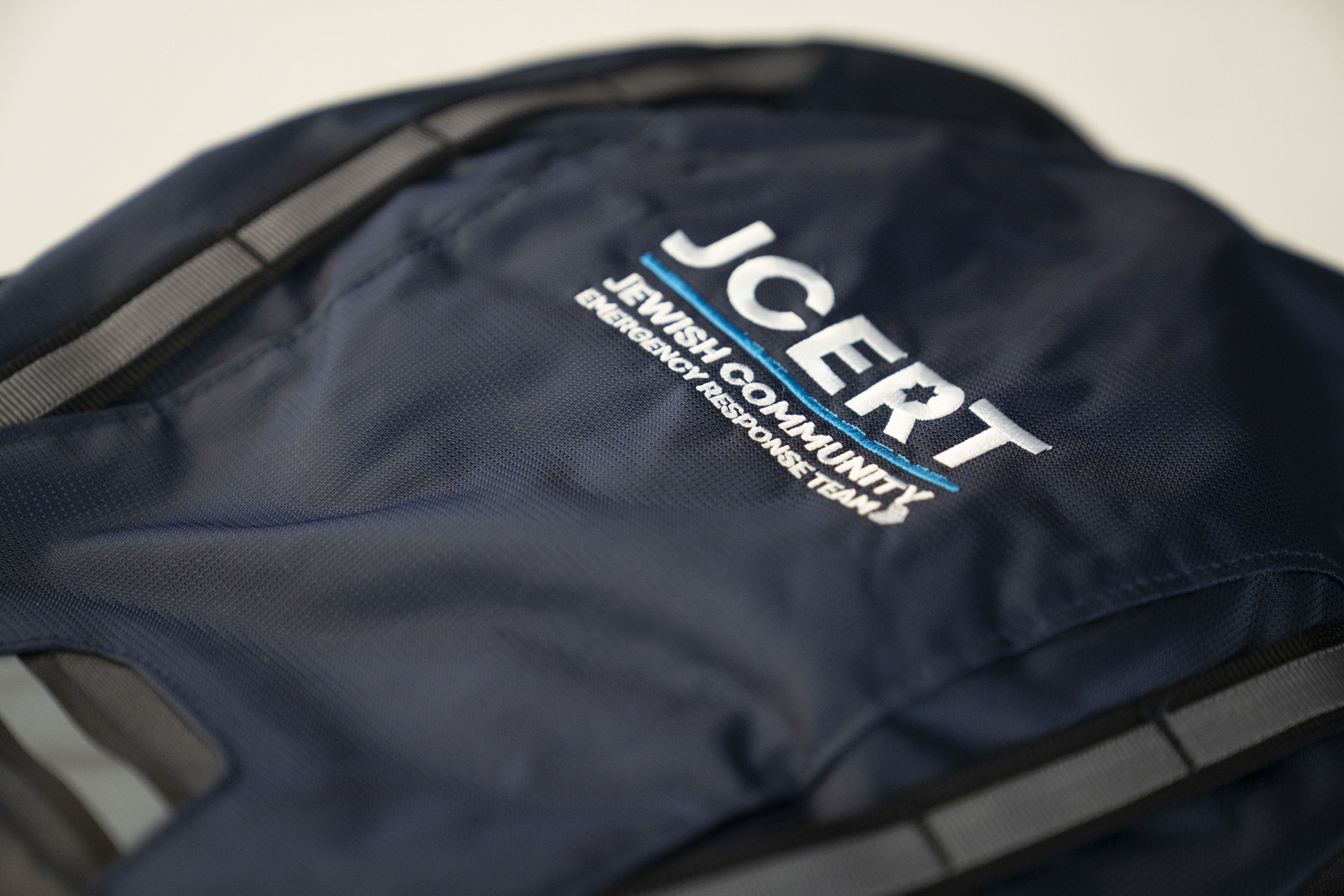Stop the Hate
When Antisemitism Impacts the Community, the Jewish Community Emergency Response Team Helps San Diegans Feel Secure Again

The Anti-Defamation League of San Diego has recorded a significant jump in the number of local antisemitic incidents in recent years.
Antisemitism is on the rise in San Diego County. The 2019 Chabad of Poway attack — in which a gunman opened fire on a congregation during a Passover Shabbat service, killing one and wounding three others — remains the most visible and lethal local incident. But beyond the national news headlines, antisemitism has continued in San Diego communities, with an alarming 29 percent jump in local antisemitic incidents from 2023 to 2024 alone.
Nonprofit organizations like Jewish Family Service of San Diego (JFS) have observed a rising tide of hate incidents and hate crimes motivated by antisemitism. This includes verbal harassment and antisemitic flyers papered across Balboa Park, at local synagogues and churches, even on people’s front doors.
At the same time, a rise in extreme rhetoric in national politics and online platforms has made it increasingly difficult for Jewish community members to create psychological boundaries in the aftermath of local and global events. Shared Rabbi Susan Freeman of JFS, “People are talking with more reckless abandon, voicing their hate online. The anonymity of online conversation has become a new horror: people feel like they can say anything, and intolerance is increasing.”
The impact is not limited to a single person. When a hate crime or incident occurs, compounded effects ripple out into the community. The reverberating trauma then stokes fear and feelings of unsafety. “It’s not just about those who are directly impacted,” noted Freeman. “Family members, bystanders, friends, and colleagues can feel the psychological impacts of hate. People often don’t realize it’s impacting their mental health.”
In response, JFS developed a first-of-its-kind program to provide community members with an immediate, compassionate response and connections to resources in the wake of a hate incident or crime. The Jewish Community Emergency Response Team (JCERT) deploys specially trained staff and volunteers to assist people with compassionate triage, providing immediate psychological support and grounding, along with connection with short- and long-term recovery resources.
Building on a Legacy of Service to the Diverse Communities of San Diego

JCERT team members graduated from a rigorous 35-hour training program specializing in compassionate triage before beginning their work in the community.
Jewish Family Service is a San Diego-based nonprofit human services agency with a highly diverse staff makeup, providing supportive services to more than 60,000 people annually. It’s well known in the region for direct services to all people in need in San Diego, regardless of religion, race, or ethnicity, and services range from food assistance and transportation to care management and safe parking for those experiencing homelessness. JFS also operates programs to meet specific needs within the Jewish community. Through a California Department of Social Services Stop the Hate grant to the organization’s Center for Jewish Care, the team was able to lay the groundwork for JCERT.
JCERT builds on a model the organization initially helped develop for the San Diego Rapid Response Network, which mobilized local service providers to effectively respond to critical needs of immigrants and asylum seekers in the region. While drawing on this model of coordinated, comprehensive support, the JFS team conducted extensive research on organizations doing similar work specifically around antisemitism. Over months of development and planning, their team met with elected officials, Jewish organizations, and even first responders who were on site at the attack in Poway. “Meeting with and developing relationships with stakeholders was integral to getting broad support and buy-in for the JCERT program,” shared Freeman. “The program was built around what the community felt was needed.”
Cultivating dialogue and collaboration with law enforcement proved another invaluable step in the development of JCERT. The JFS team interviewed local FBI experts and San Diego Police Department leaders to understand each entity’s protocols and boundaries when responding to hate crimes and incidents. Through this process, JFS was able to tailor an approach that supports law enforcement and first responders to respond to antisemitic incidents in a culturally sensitive way. It also allowed JFS to identify needed support mechanisms without duplicating efforts.
“Law enforcement recognizes where the gaps are as well and wants to help,” shared Lauren Strasser, who worked with JFS to develop the JCERT training course. “We had conversations about assessing needs on all sides — recognizing the strengths and gaps of both public agencies and private service providers — and filling in the gaps.”
During this research period, JFS also closely collaborated with Jewish Federation of San Diego, a fellow Stop the Hate grantee. JFS now participates in Federation’s monthly antisemitism roundtable for timely updates on conditions in the community, and the gatherings have helped to solidify partnerships across Jewish organizations and service providers in San Diego.
Launching the Jewish Community Emergency Response Team
Out of this development process JFS created a customized 35-hour training program and graduated two cohorts of the Jewish Community Emergency Response Team. The trainees, consisting of both JFS staff and volunteers, earned certifications in suicide awareness/prevention and CPR/first aid, and received training on Jewish cultural competency, issues around antisemitism, and listening and communication skills. With a heavy focus on psychological first aid, trainees learned strategies to help people to feel grounded and regain a sense of safety in the aftermath of an antisemitic incident.

Responders also became well-versed in support and response mechanisms available in the community. This equips JCERT responders with knowledge to quickly connect clients with culturally competent mental health counselors and other service providers. To understand how emergency management works in general and what these processes look like specifically in San Diego, JCERT trainees also met with stakeholders and community leaders, including representatives of Anti-Defamation League of San Diego and Secure Community Network.
Beyond the trainings, JCERT responders themselves have brought significant assets to the program. Team members live throughout San Diego County, with the potential to connect in-person with geographically dispersed clients quickly. Collectively, they speak a wide variety of languages — including Hebrew, Spanish, Ukrainian, Russian, German, and Yiddish — and can communicate effectively with individuals who either don’t speak English or feel better able to express themselves in another language. JCERT responders also reflect different backgrounds, ethnicities, religions, gender expressions, sexual orientations, and intersectional identities. The JCERT team’s diversity sends a critical message to people impacted by antisemitism, according to Freeman. “They know people care for them and can help, whether they are Jewish or not.”
As JFS launched the program, JCERT responders began connecting individuals to immediate and long-term support while meeting needs that don’t always fall into neat categories or meet the criteria for law enforcement involvement. Naomi (name changed for anonymity) is one such case. A student at San Diego State University, Naomi’s car was vandalized with antisemitic hate speech while she attended class on campus. She didn’t feel safe driving the vandalized vehicle or having it parked outside her home, but the repairs were a significant expense. Through JCERT, Naomi was able to have the car repaired and repainted. JCERT responders also arranged a rental car for Naomi to minimize disruption in her day-to-day schedule and continue attending classes. To reinforce a sense of physical and psychological safety, the JCERT team helped install security cameras at her home and provided connections to culturally competent mental health services.
Building an infrastructure for healing from acts of hate
On a macro-level, JCERT has helped to build a regional infrastructure to interrupt patterns of hate. When hate becomes normalized, people often don’t report it — making both the hate incident and the person impacted “invisible” in the public eye. JCERT has become a resource for individuals to share experiences and information they might not otherwise divulge. And by encouraging those who connect with JCERT to report incidents to local law enforcement and partners like ADL San Diego, the program is helping to ensure antisemitism is documented and more accurately tracked. This, in turn, allows communities and law enforcement to better understand the scope of hate in the region and move more resources toward prevention and community support.
This infrastructure is made possible through a network of dedicated service providers, community groups, and law enforcement agencies working to break down siloes and fill in service gaps for those impacted by antisemitism. And thanks in part to the community-driven development process for JCERT, partners across San Diego are continuing to build pathways for knowledge sharing and collaboration to continually improve this support structure.
But JCERT’s impact is also evident in every individual act of support for someone affected by antisemitism. A caring voice on the other end of the phone line. A hand to hold when you feel alone or scared. An ally who understands your experience, your culture, your language. And with a diverse team working in solidarity to support the local Jewish community, JCERT is helping people regain a sense of safety and belonging in the aftermath of incidents intended to rob them of those very things.
Learn more about JCERT here. If you are in need of emotional support as the result of an antisemitic incident or crime, call JCERT at the Center for Jewish Care at (858) 637-3359.
If you are injured or fear for your safety or the safety of others, call 911 immediately. If you or someone you know is experiencing thoughts of suicide, please call or text the Suicide and Crisis Lifeline at 988 or call the San Diego Access and Crisis Line (ACL) at (888) 724-7240. Live chat is also available Monday-Friday, 4:00-10:00pm at It’s Up to Us San Diego.